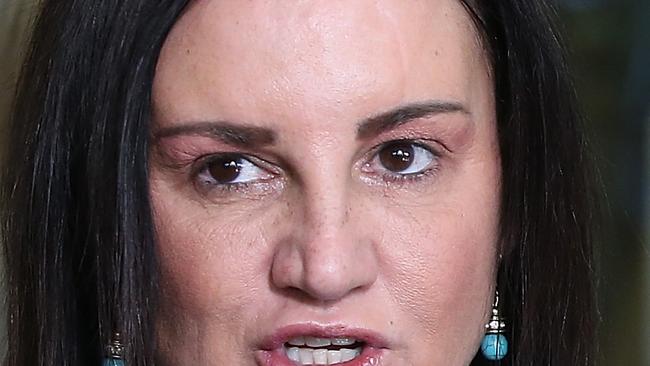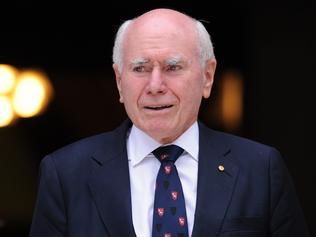Budget 2017: John Howard takes issue with ‘highly political’ document
The former Liberal prime minister says Scott Morrison’s blueprint represents a divergence from conservative ideals.

Former Prime Minister John Howard has delivered a lukewarm response to the Turnbull’s Government’s federal budget as a “highly political” document and a divergence from conservative ideals, formulated specifically to pass through a “recalcitrant” senate.
Addressing a PwC post-budget briefing in Melbourne, the former PM took a swipe at the Turnbull Government’s decision to take aim at the banks, branding a new banking levy designed to raise $6.2 billion as a “tax on banks.”
“It’s not a levy on banks, it’s a tax on banks,” he said.
The former Prime Minister acknowledged the government’s hand had been forced by the Senate, which was controlled by crossbenchers and The Greens which had showed far less propensity to side with the government than the Democrats had shown towards the Coalition under Mr Howard.
“We have to respond to the senate we have, and I think last night’s budget is to be seen overwhelmingly in the context of the government responding to the senate we have,” he said.
Mr Howard told the audience he was “troubled” by the government’s increasingly heavy-handed approach dealing with banks including the unprecedented measure to create a body that monitor the conduct of banking executives.
“I’m uneasy about it, and I understand banks do pay company tax ... but the arguments against the mining tax applied by Wayne Swan can be applied here with equal force, and I think some of the comparison with the UK are not complete,” he said, adding that UK banks were also provided equity injections by the UK Treasury when they were levelled with similar levies.
But some of Mr Howard’s strongest comments were reserved for what he believed was a stark divergence from a conservative budget, which had watered down some of the party’s more traditional ideals in favour of a budget that would pass unimpeded through the Senate.
“It’s my belief that after having tried unsuccessfully to secure passage through the senate of a series of expenditure measures or expenditure reduction measures, the government came to the conclusion ... it had to adopt a different path.
“The path of banging your head against a recalcitrant Senate door was not going to be successful and a different path had to be chosen,” he said, adding that presenting any measures already floated before to would have “absolutely no hope” of passing through the second chamber.
“Particularly in relation to the tax on the banks, and its not a levy, it’s tax, it decided it was going to present something that would be impossible for the Labor Party and The Greens to vote against,” he said.
The conservative icon also questioned the government’s working visa overhauls, and said it was likely that it could harm both the medical sector and the university sector.
“I’m not wildly enthusiastic about them,” he said of the proposal to scrap the 457 visa scheme and replace it with two, more stringent visa codes.
“I don’t like ad hominem legislation and singling out an individual group and saying we’ll treat them differently ... the consequence of this decision is hard to measure, but the anecdotal evidence is that it will impact the university and medical areas







To join the conversation, please log in. Don't have an account? Register
Join the conversation, you are commenting as Logout